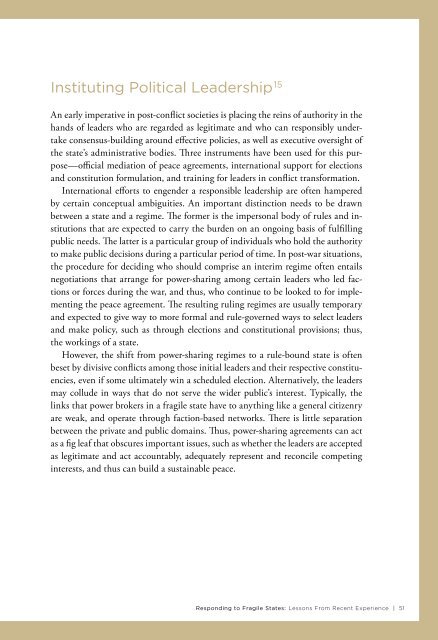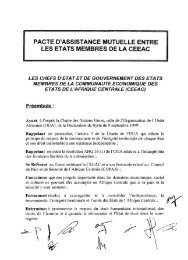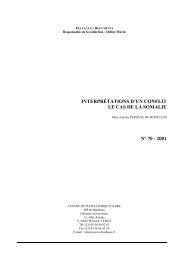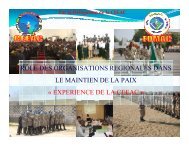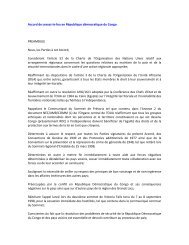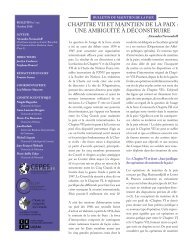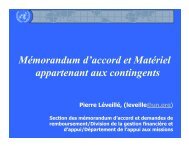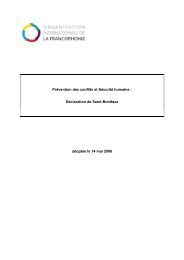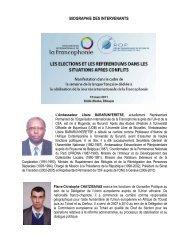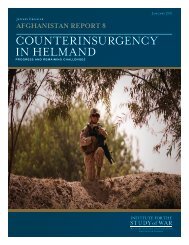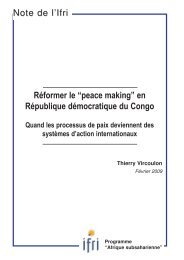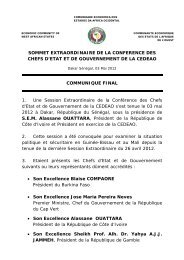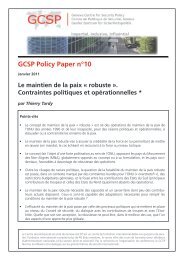engaging fragile states - Woodrow Wilson International Center for ...
engaging fragile states - Woodrow Wilson International Center for ...
engaging fragile states - Woodrow Wilson International Center for ...
Create successful ePaper yourself
Turn your PDF publications into a flip-book with our unique Google optimized e-Paper software.
Instituting Political Leadership 15<br />
An early imperative in post-conflict societies is placing the reins of authority in the<br />
hands of leaders who are regarded as legitimate and who can responsibly undertake<br />
consensus-building around effective policies, as well as executive oversight of<br />
the state’s administrative bodies. Three instruments have been used <strong>for</strong> this purpose—official<br />
mediation of peace agreements, international support <strong>for</strong> elections<br />
and constitution <strong>for</strong>mulation, and training <strong>for</strong> leaders in conflict trans<strong>for</strong>mation.<br />
<strong>International</strong> ef<strong>for</strong>ts to engender a responsible leadership are often hampered<br />
by certain conceptual ambiguities. An important distinction needs to be drawn<br />
between a state and a regime. The <strong>for</strong>mer is the impersonal body of rules and institutions<br />
that are expected to carry the burden on an ongoing basis of fulfilling<br />
public needs. The latter is a particular group of individuals who hold the authority<br />
to make public decisions during a particular period of time. In post-war situations,<br />
the procedure <strong>for</strong> deciding who should comprise an interim regime often entails<br />
negotiations that arrange <strong>for</strong> power-sharing among certain leaders who led factions<br />
or <strong>for</strong>ces during the war, and thus, who continue to be looked to <strong>for</strong> implementing<br />
the peace agreement. The resulting ruling regimes are usually temporary<br />
and expected to give way to more <strong>for</strong>mal and rule-governed ways to select leaders<br />
and make policy, such as through elections and constitutional provisions; thus,<br />
the workings of a state.<br />
However, the shift from power-sharing regimes to a rule-bound state is often<br />
beset by divisive conflicts among those initial leaders and their respective constituencies,<br />
even if some ultimately win a scheduled election. Alternatively, the leaders<br />
may collude in ways that do not serve the wider public’s interest. Typically, the<br />
links that power brokers in a <strong>fragile</strong> state have to anything like a general citizenry<br />
are weak, and operate through faction-based networks. There is little separation<br />
between the private and public domains. Thus, power-sharing agreements can act<br />
as a fig leaf that obscures important issues, such as whether the leaders are accepted<br />
as legitimate and act accountably, adequately represent and reconcile competing<br />
interests, and thus can build a sustainable peace.<br />
Responding to Fragile States: Lessons From Recent Experience | 51


